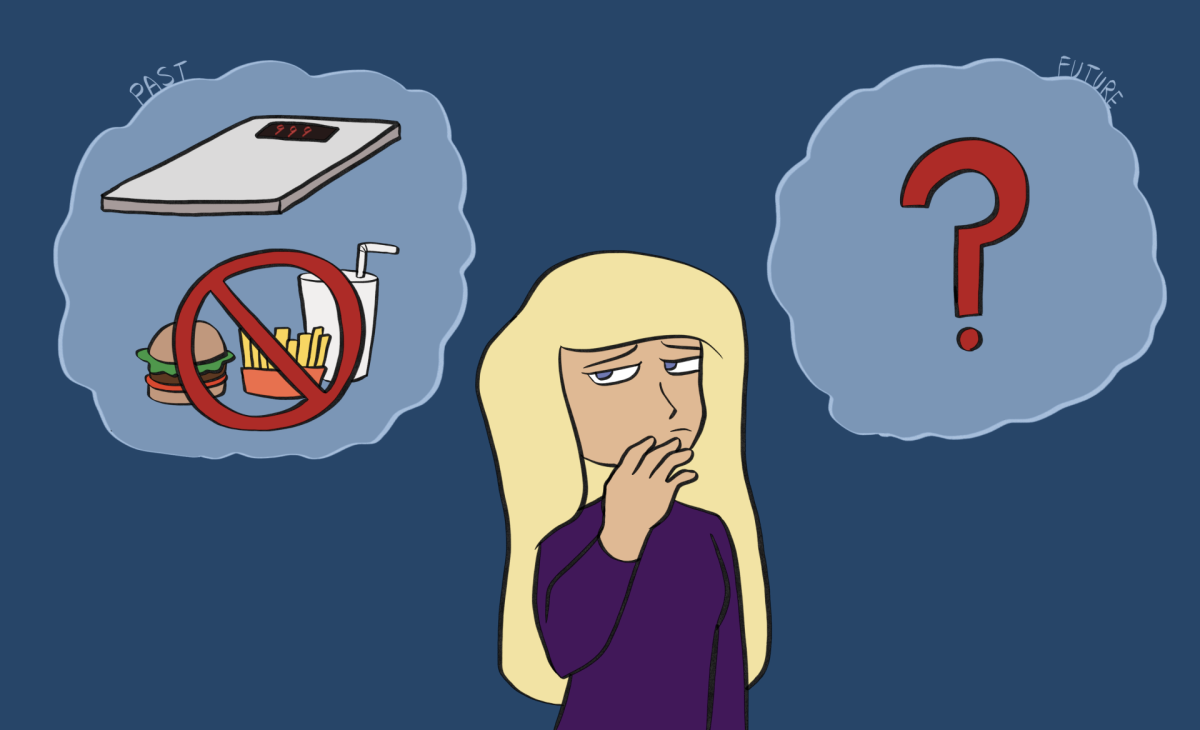Enough With The Pudge: Sleeping Away Your Unwanted Pounds

“Sometime Around Midnight” is not only the name of a song frequently playing on my iPod, but it is also right around the time when we find ourselves saying, “Screw it; I’m starving.”
Whether we are at Kelly’s drinking beers and stopping at Devil Dawgs on the way home, or lying on our couch, watching “P.S. I love You” with our hands in a large bowl of buttered movie popcorn, it is always late at night when we start consuming large amounts of fatty, unhealthy things.
So, what’s the solution? Realistically, no matter what we are doing, if we stay up really late, we are bound to eat something. For some people, depending on your body, anything that you eat within an hour of going to bed turns directly into fat, rather than being used for energy, after falling asleep as our body has a lot of other things it has to do while we sleep.
So, the answer is, quiet honestly, very simple, and just might be exactly what we all would hope the answer would be. Go get in your P.J.s, crawl into your bed, wrap your covers around you, rest your head on that soft, fluffy pillow, and GO TO SLEEP!
How many times have you found yourself saying, “Oh my God, I wish I could not do anything, and still have a great body.” Maybe I’m just lazy, but I say it very often while I’m sitting at home watching Friends, envying Jennifer Aniston’s body, and dreading having to go to the gym. Although it is still extremely important to exercise and eat healthy throughout the day, it is still great news that getting a good amount of sleep helps with many things in our lives, including our weight and metabolism.
Aside from merely avoiding late-night eating, going to sleep at a descent hour choreographs a perfect harmony of hormonal activity linked to our appetite. Ghrelin and leptin are the two key hormones affecting our weight that are produced when we get enough sleep.
Doctors say we need about 7.5 hours of good, “OMG I just had the best night sleep” sleep in order for our bodies to go through all of its processes and fully rejuvenate itself. However, when we do not get enough sleep our body produces more ghrelin and less leptin, which means more greasy foods and less lean bodies.
Think of ghrelin as a green light, as it tells us when to eat; therefore when we don’t get enough sleep and our bodies produce more ghrelin, naturally, we find ourselves eating more as we are hungrier and never satisfied.
Leptin does the exact opposite as it acts as a mental picture of the Victoria Secret models that haunt our dreams; it gives us the stop sign when we are satisfied and full from eating.
When we are sleep deprived, these hormones are the reasons why our metabolism is slower and why we eat more. We also find that aside from not being as hungry, getting the right amount of sleep also lessens our cravings for sugary, calorie-dense foods.
As college students, however, sleep is something that is easier said than done for most of us. It is just about impossible to get the right amount of sleep while trying to get all of your homework done, keeping a good social life, and going out with your friends – while still waking up early to go to class.
I can’t tell you the answer to balancing everything in life perfectly; I’m not God. However, if we accept that we are all going to have those late nights at the 24-hour Starbucks doing homework, or find ourselves at The Store at 3:00 a.m. buying a round for whoever just beat us in the arcade basketball game in the back, we might be able to put in the extra effort into getting the right amount of sleep every once in a while.







